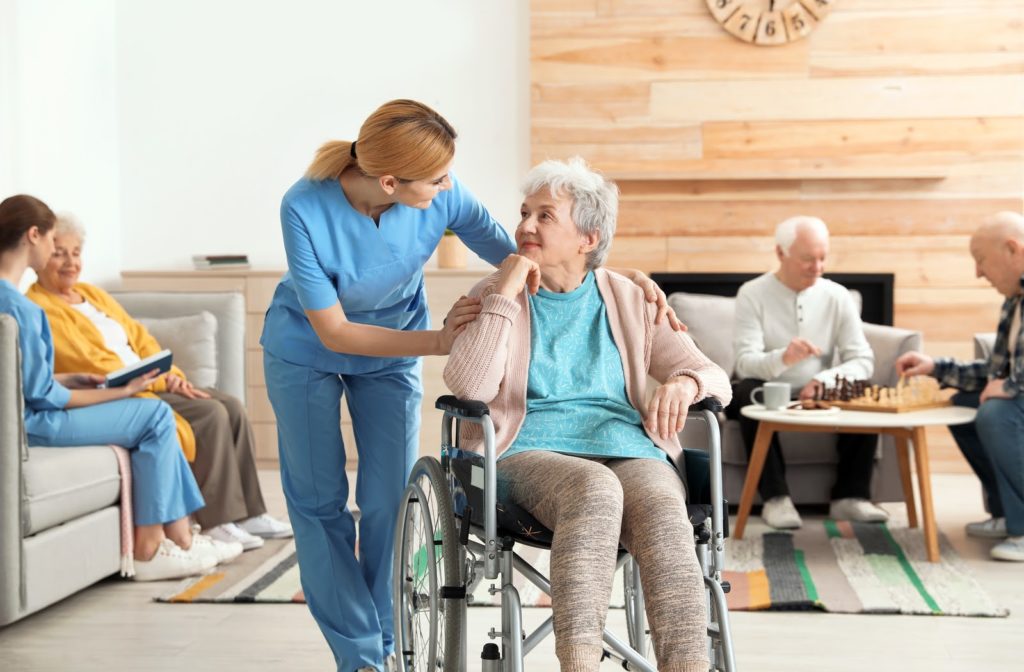How Aided Living Facilities Enhance High Quality of Life for Those With Mental deterioration
The assimilation of appealing programs and family involvement further improves the citizens' experience. The complexities of dementia care continue to progress, prompting a closer assessment of just how these facilities adapt and introduce to meet the challenges dealt with by citizens and their households.
Personalized Treatment Program
(Dementia Care Charlotte)In several cases, individuals with mental deterioration require customized support that addresses their unique needs and choices. Personalized treatment plans are crucial in assisted living settings, as they ensure that each resident obtains ideal focus and services. These strategies are developed collaboratively, involving healthcare experts, caregivers, and member of the family to develop a thorough review of the person's case history, cognitive capabilities, and personal interests.
A well-structured customized treatment plan generally consists of particular goals connected to wellness management, daily tasks, and social engagement. It accounts for the person's cognitive decrease while advertising self-reliance and self-respect. Regular analyses and updates to the care plan are crucial, as they enable alterations based on the resident's evolving problem and preferences.
Trick elements of these strategies often entail medicine management, behavior support approaches, and nutritional guidelines customized to the person's demands (Memory Care). By focusing on personalized care, aided living facilities can promote a helpful atmosphere that boosts the lifestyle for individuals with mental deterioration, inevitably adding to their overall wellness and happiness. This personalized technique appreciates the individuality of each resident, guaranteeing they receive the compassionate care they require

Engaging Activities and Programs
Involving homeowners in purposeful activities and programs is crucial for enhancing the top quality of life for people with dementia. These tasks not just provide pleasure but also stimulate cognitive function and advertise social interaction, which can minimize sensations of isolation usually experienced by homeowners.

Furthermore, individualized programs are important in guaranteeing that each local's distinct choices and capacities are recognized. This customized technique urges involvement, boosts self-confidence, and supplies a feeling of accomplishment.
Moreover, routine assessments of locals' rate of interests can aid staff modify and adjust activities to far better suit progressing needs. By prioritizing appealing activities and programs, aided living centers can dramatically enhance the general experience and psychological wellness of people living with dementia.
Safe and Supportive Environment
Creating a risk-free and supportive atmosphere is crucial for individuals with dementia, as it directly affects their wellness and quality of life. Helped living centers are made with certain features that promote safety while fostering a complacency and comfort. These environments focus on ease of access, with formats that reduce complication and motivate self-reliance, permitting homeowners to navigate their surroundings much more conveniently.
Security steps, such as secure entryways and departures, stop straying and unauthorized gain access to, which are essential factors to consider for people with mental deterioration (Assisted Living). Personnel are trained to identify the one-of-a-kind needs of residents, giving customized assistance and supervision to ensure their security. The consolidation of calming colors and familiar objects can help reduce anxiety and disorientation, developing an extra calming atmosphere.
In addition to physical safety, emotional support is vital. Facilities commonly use staff who are not just knowledgeable in caregiving however also learnt empathy and interaction, cultivating trust fund and relationship with locals. This alternative approach adds to a nurturing environment where individuals feel valued and comprehended, eventually enhancing their general lifestyle.
Social Communication and Neighborhood
A helpful setting not only focuses on safety yet additionally promotes chances for social communication and neighborhood interaction, which are crucial for individuals with dementia. In nursing home, organized activities and public areas urge residents to connect with each other, lowering feelings of isolation frequently experienced by those with cognitive impairments.
Social communication plays a significant duty in improving emotional health and cognitive feature (Memory Care). Engaging with peers in team activities such as games, arts and crafts, or exercise not only stimulates cognitive capabilities but likewise nurtures a feeling of belonging. Facilities commonly arrange occasions that advertise socializing, enabling homeowners to develop partnerships and share experiences, which can be particularly valuable for those with dementia
Additionally, a lively community environment can enhance the overall top quality of life for citizens. Personnel participants are educated to help with interactions and assistance citizens in developing meaningful links.
Family Participation and Assistance
Family participation is crucial in sustaining people with dementia in assisted living settings. Proactively involving member of the family not only provides emotional convenience to homeowners but likewise promotes a sense of pop over to these guys belonging and continuity in their lives. When family members take part in treatment preparation and daily tasks, they contribute useful insights about the person's choices, history, and needs, which can improve tailored treatment.
Moreover, normal family members brows through can substantially boost the psychological wellness of citizens, decreasing feelings of seclusion and stress and anxiety. Member of the family can additionally aid in maintaining cognitive feature by engaging their loved ones in acquainted discussions and activities. This communication reinforces personal identification and aids locals really feel valued and understood.

Final Thought
In conclusion, assisted living centers substantially boost the quality of life for individuals with dementia with individualized treatment plans, engaging activities, and a risk-free setting. Jointly, these aspects create an alternative strategy to care that addresses the one-of-a-kind demands of individuals with dementia, advertising total health and self-respect.